Dear members of parliament!
Now allow me to dwell on the program and targeted tasks in the economic sphere which we must accomplish in 2020 and later years.
First, in 2020 our main task will be to ensure macroeconomic stability and contain inflation in the process of economic reforms.
Starting from this year we have embarked on introducing the system of inflation targeting. In this work the Ministry of Economy and Industry, Central Bank and Ministry of Finance must provide for balance of economic growth and inflation, and consider external risks.
Also Read: Noble Effort in Caring Senior Citizen; Best Practices from Indonesia to the World
At present, the state regulates prices for 37 types of commodities and services, and this negatively affects free competition. In this regard, from now on main attention shall be paid not to identifying prices but reducing them and raising product quality thanks to healthy competition among enterprises.
Based on learning foreign experience we need to open up ways to private sector in the monopoly spheres where the conditions can be created for competition and shaping competitive environment. In this context, it is necessary to renew laws on natural monopolies and competition, as well as design Competitive environment strategy.
The only way of ensuring steady prices for food products in the consumer market is to increase volumes of horticultural, animal and other food products, as well as create effective continuous chain «field – shopping counter». The government along with bodies of power on the ground must ensure implementation of this task.
We must reinforce supervision over purposeful and reasonable use of budget funds.
Also Read: Open Letter to President Prabowo Subianto: Never Recognize the Sovereignty of Zionist Israel
This year we have identified threshold upper limit of public external debt. From now on a serious attention shall be paid to studying cost recovery and effective use of loans of international financial organizations.
The Cabinet of Ministers shall be tasked in a three-month’s time to develop along with international experts the draft laws «On state financial control» and «On public debt».
Unless we eradicate the «shadow economy», which seriously hinders our reforms, we cannot even speak about forming healthy competition and favorable investment climate.
The Cabinet of Ministers shall in a two-month’s time along with foreign specialists thoroughly analyze factors that serve for emergence of the «shadow economy» and approve program of containing it.
Also Read: Measuring the Reality of the Israel-Palestine Two-State Solution
At present, in order to bring order in the alcohol and tobacco market we have started to introduce the digital marking of goods. Later we will use such a system in the sphere of pharmaceutical product turnover, as well.
The Cabinet of Ministers shall be tasked to take to its special control the project of introducing digital marking and online cash registers which is being implemented thanks to foreign direct investments in the amount of 200 million dollars.
Second, in order to develop economy with high rates we need to consistently continue active investment policy.
This year we will disburse investments in the amount of 23 billion dollars with commissioning 206 new large production facilities. In particular, we will commission production capacities of liquid synthetic fuel at the Shurtan Gas Chemical Complex and the nitrogen acid, ammonia and carbamide – at the «Navoiazot» Joint-Stock Company.
Also Read: Tunisian Man Donates Boat to Global Sumud Flotilla, Citing “Gaza Is Worth More Than Anything”
We are planning to commission the Tashkent Metallurgical Plant, Sergeli branch of the Tashkent subway and complete the first stage of construction of over-ground belt subway.
I want to underscore that significant part of investments to be disbursed in 2020 will make up foreign direct investments and credits.
In order to support investors we are introducing mechanisms of extension for tax payments and partly reimbursement by state of the expenditures for infrastructure.
Along with this, we have expanded the practice of deductions of expenses in calculation of an income tax meant for procurement of new technological equipment, construction and modernization of new facilities.
Also Read: The Sunnah of Eclipse Prayer: A Step-by-Step Guide
We have to undertake stock-taking of about 3 thousand enterprises with a state share in them and take measures to radically reduce state’s participation in the spheres where private sector and competition are developing.
We need to implement new investment projects at such strategic facilities as Navoi and Almalyk mining and smelting enterprises and turn them into full-scale participants of the international financial market. For this purpose in 2020 we need to complete preparation of financial reports based on international standards, reassessment of reserves and introduce modern corporate management.
In the oil and gas sphere along with foreign experts we should raise efficiency of state enterprise management, optimize expenses and achieve reduction of debts.
Taking these tasks into account the Cabinet of Ministers shall in a two-month’s time develop the Strategy of management and reforming enterprises with state participation.
Also Read: Reflecting on Road Engineering: An Effort Toward Driving Safety
In order to actively attract foreign investments we need to hold at high organizational level in March this year the Tashkent International Investment Forum.
The mechanism of public private partnership is one of the effective means to attract investments. It should be broadly introduced to the spheres of transport, energy, road construction, public utilities, medicine, education and other areas.
At the moment, the construction industry became one of the important drivers of economy. This is also confirmed by the fact that its share in the gross domestic product increased 6 percent. In order to further develop this industry we need to harmonize norms and rules in the sphere of construction with international standards, introduce modern construction technologies and materials, and radically reform the system of cadres training.
Along with this, we should develop concrete criteria of holding bids and actively apply the information technologies in this system.
Also Read: Stop the War Now
The Cabinet of Ministers shall in a two-month’s time draft a strategy of development of construction industry for up to 2025.
Third, we need to take decisive measures this year to develop banking system.
Unfortunately, the banking system lags behind for 10-15 years from modern requirements in terms of development of digital technologies, introduction of new banking products and software.
Starting from 2020 the large-scale transformation program will be implemented in each bank.
Also Read: From Indonesia’s Zero Point, Three Muslim Women Raise a Flag and a Call for Humanity for Palestine
The goal to increase capital and resource basis, as well as profit-making capacity of banks will be in the focus of our attention.
We need to put in place the activity of the «project factory» in the banking system aimed at supporting entrepreneurs.
Our banks must go to international financial markets, attract accessible and long-term resources. It is expedient to the National Bank and «Ipotekabank» to issue «Eurobonds» this year.
The banks with a state share will be sold step-by-step to strategic investors.
Also Read: The Virtues of a Journey to Al-Aqsa Mosque
The major goal of reforms in the banking sphere is to teach commercial banks to be more client-oriented in their operations.
With a view of training contemporary cadres, the Banking-Financial Academy will be fully reorganized along with foreign specialists.
In order to introduce modern banking practices, management and new banking services, we have started to attract qualified specialists from leading foreign financial institutions to managing positions. We will continue our work in this direction.
The software of banks should be entirely renewed by way of actively introducing modern information technologies.
Also Read: My Interpretation on Unidentified Painting
Until July 1 this year it is necessary to fully launch the information system of «credit histories».
It is important to form trust of the population towards banking system and not to allow for interference in the activity of banks from aside.
Fourth, production of competitive products, search for new international markets and increasing exports and full-scale use of transit potential serve as a guarantee for sustainable economic growth.
This year we will establish the Fund for Exports Support aimed at rendering exporters a guarantee of payment and compensate part of their expenses, as well as the Export-Credit Agency which will organize pre-export financing.
It is envisaged to introduce contemporary export insurance services, mechanisms of compensations by state of a part of expenses for the use of automobile and air transport.
We need to improve the system of control and infrastructure in the sphere of external trade. In particular, based on foreign experience we should reform the activities of sanitary, quarantine, veterinary and other agencies, which carry out control at customs checkpoints.
In 2020 we will have to pass about 3 thousand standards and take their number up to 10 thousand and the level of correspondence to international standards – up to 40 percent.
In Andijan, Termez and Kungrad districts we are envisaging to establish free trade zones and develop cross-border trading through them.
The identification of in-demand types of products, search for markets and realization of products must be carried out by private trading companies. For this purpose we need to develop package of laws which regulate their operations.
This pertains both to trading at domestic and external markets.
The Cabinet of Ministers shall in a month’s time develop the concept for regulating foreign economic activity and take relevant measures in terms of ensuring implementation of these tasks.
In order to timely take our products to external and domestic markets and reduce their prime cost, we need to develop the sphere of transport and logistics.
In the rail-road sphere we need to separate transportation of passengers and cargo, operations and services, i.e. we should define natural monopoly part of it and separately develop very directions where the private sector can be attracted to.
According to international experts, thanks to improving infrastructure, ensuring transparency of tariffs and launching new routes the transit potential of our country could be taken from current 7 million tons up to 16 million tons.
I want to draw your attention to yet another important issue.
In order to raise incomes of our population, create additional jobs and increase production we need new markets.
At present we are adopting many laws and decisions considering the requirements of modern market economy. However, unfortunately, many heads responsible for their implementation still cannot get rid of old methods of work, careless and formal approach.
The open market dictates the need to raise product quality, reduce prime cost, attract new technologies and advance market reforms. Consequently, we must fit into the international product chains, correspond to labor market requirements and step in line with economic integration.
In order to be ready to dialogue and competition in the international market, the heads of industries must scrupulously refine themselves.
Taking all these factors into account, we well understand the need to expand economic integration.
At present, 80 percent of our foreign trade cargo is shipped by transit through Russia, Kazakhstan and Kyrgyzstan. Having said that, 50 percent of exports of finished products and in some positions – more than 80 percent of goods are exported to these countries.
Taking this into account, as well as with a view of creating favorable conditions for our citizens, who are working in Russia and Kazakhstan, at the moment we are scrutinizing the issue of putting in place Uzbekistan’s interaction with the Eurasian Economic Union. Certainly, in this serious issue we shall proceed, firstly, from the interests of our people and shall rely on its will. Therefore, our deputies and senators, who are the representatives of people, must comprehensively discuss this issue in the chambers of parliament and with full responsibility enunciate their substantiated position.
The Cabinet of Ministers needs to complete analysis and comprehensive assessment of this issue and on its outcomes introduce relevant conclusions and proposals to the chambers of Oliy Majlis.
Along with this, we will continue our dialogue with the World Trade Organization and the work with the European Union on the new Agreement on extended partnership and cooperation.
We will also develop our participation in other international and regional economic organizations.
Fifth, it is necessary to continuously ensure the sectors of industries with raw and create relevant modern infrastructure.
In order to provide a number of important branches of economy with raw, including chemical, oil and gas, energy, electrical engineering industry, production of construction materials and jewelry industry, firstly, we need to bolster activities in the sphere of geological exploration.
This year we will channel 2 trillion soums from budget for exploring prospective areas and increasing proven reserves of mineral raw.
The State Committee for Geology shall, by effectively using these funds, explore this year by 35 percent more new prospective areas and deposits, and next year – increase by 40 percent more.
The State Committee for Geology along with the Ministry of Investments and Foreign Trade shall form a package of ready projects on no less than 20 deposits for attracting potential investors for their development.
Along with this, the State Committee for Geology must introduce the international system of record-keeping, classification and management of hydrocarbons and their reserves.
In order to ensure economic growth it is extremely important to create modern and effective infrastructure. During forthcoming three years we will channel 9,8 trillion soums for construction of roads, 4,6 trillion soums – construction of water supply networks, 18,2 trillion – building electrical power-lines and 1,2 trillion – natural gas supplies. This financing is bigger several-fold as compared to the last ten years.
At the same time, we need 10 times more funds for creating modern infrastructure and modernization of available systems. No matter how difficult it will be, we shall annually allocate funds in the framework of investment programs and shall surely continue our work in this direction.
Along with this, channeling of half of the over-prognosis earnings of the republican and local budgets to the development of infrastructure must become one of the main tasks of the Ministry of Finance and khokims (‘governors and mayors’) this year. It is expedient along with Legislative Chamber and Chamber of Accounts to examine on the ground purposeful and effective use of these funds.
Sixth, further improvement of business environment remains as one of the most important tasks.
We are taking all organizational and legal measures to join the top 50 countries in the World Bank’s «Doing Business» rating.
The Government must ensure effective implementation of relevant measures.
According to the recently adopted Tax Code, many novelties are being introduced starting from this year. In particular, the types of taxes were reduced from 13 to 9. The simplified mechanisms of payment of taxes with a possibility of grace period (delay) or extension were introduced.
We are introducing for the first time the order of returning part of the value added tax to entrepreneurs in selling the product. So far, this procedure applied to goods export only.
Thanks to this, funds in the amount of 3,4 trillion soums, which is 2,5-fold more compared to last year, shall remain at the disposal of entrepreneurs.
Now, should the excessive tax paid by an entrepreneur not be refunded on time, interest shall be paid to this amount on to the basic rate of the Central Bank.
I believe that entrepreneurs, who are sitting in this hall today and watching this address on TV, understand the true essence of this best of all.
Each tax official, entrepreneurs and taxpayers should closely embrace the provisions of the Tax Code and to this end they should regularly be trained.
In order to drastically change the worldview and train qualified tax service staff, I propose to establish a Fiscal Institute under the State Tax Committee.
High profile foreign experts need to be involved in this process.
At the same time, we will substantially change the license and permission granting procedures which is the one area which upsets entrepreneurs a lot.
We should openly admit that among 280 license and permissions there are the ones which are intended only for keeping the record of activity types, collecting funds or mere «controlling».
And this causes justified complaints by entrepreneurs.
In this regard, the Ministry of Justice, the Commerce and Industry Chamber and the Business Ombudsman shall until March 1, 2020 radically revise the current grounds of license and permission granting and submit a specific proposal on reducing their number by 2 times.
A Law «On small and medium business» needs to be drafted, as well.
It should include the criteria of small and medium business, as well as mechanisms of incentivizing of representatives of this sphere.
This year we will introduce a new system for openly and accurately communicating to entrepreneurs the information on available land plots in each region.
This system will enable to receive online a full map of available land plots, buildings and facilities, their cost and terms needed for entrepreneur’s activity.
You are well aware that a moratorium imposed two years ago on inspecting financial and economic activity of enterprises has expired.
However, it doesn’t mean that widespread inspections can be renewed again in an old style.
Whether someone likes it or not, but we will not allow this. All heads of controlling bodies must be very careful.
In the first quarter of 2020, a new modern system must be introduced at all levels of controlling bodies based on advanced practices.
A separate work should be carried out in terms of each enterprise and entrepreneur and the legality of the activities should be ensured, while an inspection should be the last resort and conducted fairly.
Heads of controlling agencies shall personally report to the Parliament on a quarterly basis on this matter.
The current bankruptcy procedures provide for liquidation of enterprises and repayment of debts at the expense of proceeds received from selling its property.
Therefore, the bailout was provided to 3 companies only for over the last 3 years.
From now on we will abandon this rule and introduce a new bailout system to rehabilitate insolvent companies on the basis of advanced foreign practices.
Both chambers of the Oliy Majlis should put in place an effective parliamentary control to ensure the rights of entrepreneurs.
We should consistently continue the practice of excluding some types of crimes with low social danger from felony offences.
In particular, criminal liability will be abolished for such conduct as pseudo-entrepreneurship and discrediting the competitor.
In addition, persons who violated customs documents for the first time, but made the necessary payments should also be exonerated from criminal liability.
The time has come to abandon the long obsolete practices when members of an economic entity with a status of a legal person would be heavily sentenced on a charge of «criminal group».
If we take into account that hundreds of entrepreneurs endure hardships and suffer financial losses, enormous significance of such changes will become yet more vivid.
Until April 1, 2020, the Supreme Court, the General Prosecutor’s Office, the Commerce and Industry Chamber and the Ministry of Justice shall thoroughly draft a law covering these matters.
Seventh, the agriculture, which is one of the key sectors ensuring the growth of our economy, employment and incomes of the population, must be developed on the basis of strategic approaches.
The current growth rates in this sphere are not acceptable at all. Unless we broadly introduce market mechanisms, increase the interest and incentives to farmers, we will not achieve the expected changes.
Therefore, we shall abolish the state order to cotton and grain growing and gradually switch to market-based procuring of these products.
Unless we choose this path, our farmers will not be free in choosing what to grow, they will not gain benefits they expect and the work-style of khokims (‘governors and mayors’) will not change.
The Fund for state support of agriculture will be reformed and soft loans will be provided to other sectors of agrarian sphere.
In the future, the Ministry of Agriculture must abandon the old work style which involved giving orders, distribution of resources and setting plans.
Instead, the Ministry should turn into a service organization, providing private agro industry organizations with such services as determining land conditions, selecting plant and seed types, pest control, financial support and product marketing.
In the agrarian sector we will continue supporting the farmer movement and our efforts in terms of gradual switch to cluster form of cotton and grain growing.
We will continue the work on establishing modern type clusters in fruit and vegetable farming, rice-growing, cattle breeding, silkworm breeding and other sectors.
Measures must be taken to cardinally increase productivity to ensure 2 billion dollars worth of export this year and increase this amount to 3-4 times within the next 5-7 years.
Early adoption by the parliament of the new Law «On cooperatives and clusters», which is a legal framework of our reforms, will match our big plans and aspirations.
This year, 3 trillion soums will be allocated for the development of fruit and vegetable farming, vine-growing, seed breeding, animal husbandry, agro-logistics, broad introduction of water-saving technologies, research and development, and staff training.
The cattle, karakul, fish and poultry breeding will be in the focus and new mechanisms of state support will be applied.
In 2020 the water-saving technologies will be introduced at 44 thousand hectares of land which is 4 times more compared to last year.
Three hundred billion soums of subsidies will be allocated from state budget for these purposes.
In addition, the water facility management processes, as well as water control and account system should be automated.
These issues should be reflected in the Concept of development of water management. The Cabinet of Ministers shall submit the draft Concept for approval until April 1 this year.
Eighth, turning tourism into a strategic sector of the economy will remain a priority task for us.
One of the government’s key tasks is to increase the number of tourists visiting our country to 7,5 million this year.
It is a known fact that a number of influential foreign media included Uzbekistan among must to visit countries.
We should take advantage of such an opportunity.
We must also actively develop pilgrimage and medical tourism which have great potential as well.
Our country boasts over 8 thousand 200 sites of cultural heritage, while only 500 of them are included in tourist routes.
In three month time, the government shall identify measures to increase to 800 the number of sites of cultural heritage along perspective pilgrimage and traditional tourist routes.
Yet another task is to accelerate the efforts to include new sites located in Uzbekistan into the UNESCO World Heritage List and Intangible Heritage List.
Tourism infrastructure should be dynamically developed this year by means of allocating 200 billion soums from state budget for the construction of modern hotels.
Ninth, urbanization processes should be accelerated while regions be developed on an integrated basis and living standards of the population improved.
Within the framework of this work, 12 satellite towns adjacent to 7 large cities including Andijan, Bukhara, Samarkand, Karshi, Ferghana, Namangan and Nukus will be selected and comprehensive measures identified on their integrated development.
Yet another interlinked issue – there is a disparity between the areas where the majority of labor force resides and where new jobs are being created.
Its solution is liberalization of domestic migration.
In this regard, the Parliament and the Government should study the best international practices to reform the system of residence permit and develop specific proposals until April 1, 2020.
It is impossible to fully meet the people’s needs for housing without attracting private sector to housing construction. Therefore, a new mortgage loan system is to be introduced.
In this regard, some 18 thousand residential buildings in regional cities and Tashkent, as well as 4 thousand houses in countryside areas will be constructed by private sector companies.
In order to ensure fair competition among banks, the state will allocate funds in the amount of 4 trillion soums among them through auctions.
To provide support to low-income population, 1 trillion soums of subsidies will be allocated from state budget, to cover the initial payment and loan interests of 16 thousand families.
My biggest aspiration is that each and every person in our Homeland has their own «small motherland» – their home. Thereby we will please our people and thus the Almighty will be pleased with us. (AK/R1/P2)
Mi’raj News Agency (MINA)





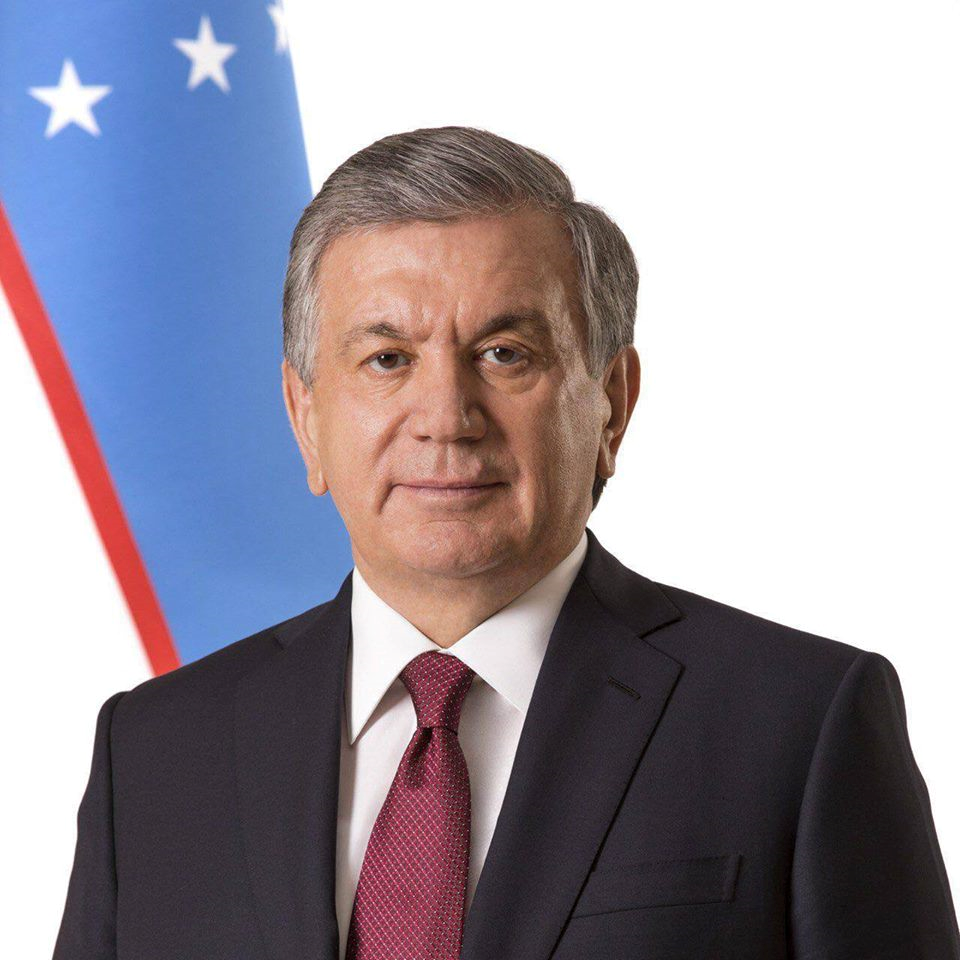





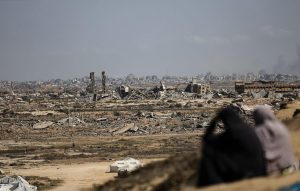



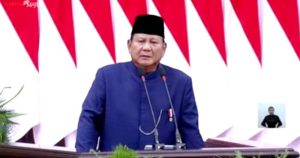


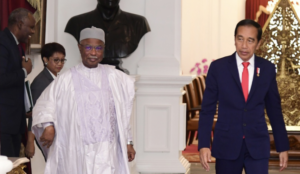
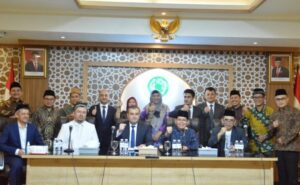
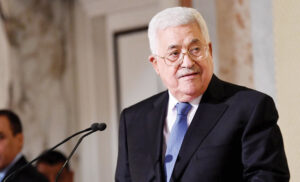



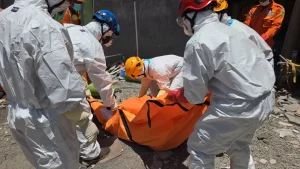



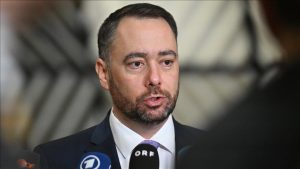
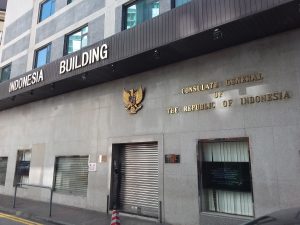




 Mina Indonesia
Mina Indonesia Mina Arabic
Mina Arabic